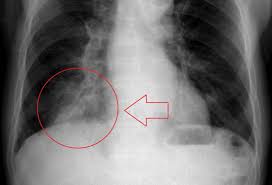Pneumonia
Pneumonia is a common lung infection which affects the tiny air sacs in the lungs (alveoli). When you have pneumonia, these tiny air sacs become inflamed and fill with fluid or pus, making it hard to breathe. Pneumonia can be caused by a virus or numerous variety of bacteria, so seeking medical attention for a diagnosis quickly will increase your chances of recovery.

Pneumonia and all its symptoms can range from very serious to mild. Babies, young children, and older people aged 65 years and above are more at risk of serious illness. Treatment will solely depend on the cause of your infection and its severity.
Pneumonia is more prevalent in the winter months. This is because many respiratory viral infections (such as flu) spread much more and put you at risk. If you are in the “at risk” category, an annual flu jab is recommended to prevent further infections entering your lungs.
For most healthy people, recovery is from one to three weeks with the correct medical treatment.
What are the early signs and symptoms of pneumonia?
You may start to have symptoms that resemble the flu or a chest infection. If you have pneumonia, symptoms may gradually develop over a few days. There are many symptoms, but these are the most common:
- Feeling generally unwell
- Weak and tired
- Coughing up mucus that maybe yellow or green in colour
- High temperature
- Difficulty breathing
- Chest pain
- Loss of appetite
- Confusion
- Nausea and vomiting
- Rapid heartbeat
- Sweating and shivering
- Confusion developing (which usually occurs in the elderly)
How is pneumonia diagnosed?
Your doctor can often diagnose pneumonia based purely on your symptoms and by examining and listening to your lungs. The only way to be absolutely certain is to have a chest X-ray and blood tests.
Who can get pneumonia?
You can get pneumonia at any age, although some groups are at higher risk than others. These include:
- People with underlying respiratory illnesses (such as cystic fibrosis and asthma)
- People who have difficulty swallowing due to a stroke, dementia, or Parkinson’s disease
- Young children and babies
- People over 65
- Those who have had a recent viral infection such a cold or flu
- People with long term medical conditions of the heart, brain, lung, and kidneys
- People with diabetes
- People with cancer, especially those undergoing chemotherapy
- People who smoke
- People who need to take medications to suppress their immune system
- People with HIV
- People who have been in hospital, especially if they have needed breathing equipment to help them
What is the treatment for pneumonia?
After your diagnosis, your doctor will work with you on developing a treatment plan. This plan will be dependent on a few factors: how sick you are, your age, and if you have other health conditions. The aim of the treatment is to cure the infection and prevent further complications.
Most people can manage their symptoms (such as a fever, cough, and temperature) at home. Your GP may prescribe antibiotics if it is a bacterial infection. It is advised to drink plenty of fluids, get as much rest as possible, and take paracetamol to reduce high fevers.
For serious cases of pneumonia, you will need to be admitted into hospital for treatment. You will then be given intravenous fluids and antibiotics as well as oxygen and be closely monitored by your medical team.
Does physiotherapy help pneumonia?
Yes. Physiotherapists can certainly help speed up your recovery by helping you to improve your breathing, clear phlegm, and get back on your feet quickly.
A physiotherapist can help with the following:
- Specialised manual chest techniques called percussion and vibrations to help loosen your mucus
- General mobility and exercise programmes to help you with endurance
- Special breathing and coughing exercises to help improve your lung ventilation
- Helping you and your family to understand your illness
- Showing you positioning techniques to help clear your phlegm
- Suggesting some gadgets that could help you loosen your mucus
How long does it take to recover from pneumonia?
Everybody is different and everybody’s case is different.
Once you are started on your course of antibiotics, your symptoms should begin to improve and hopefully set you on the path to recovery within a week or two. However, for some it could take a lot longer.
You will need plenty of rest for the first couple of weeks to allow your body to repair. Most people will continue to feel tired for around a month, which is why rest is so important to maintain progress towards a full recovery.
